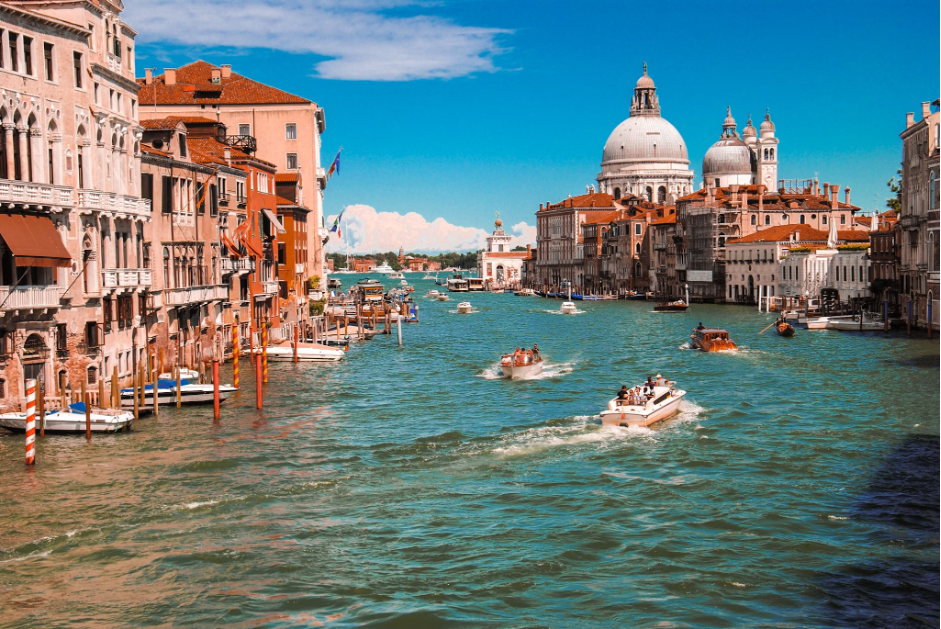For many people Italy is not just a travel destination, it represents a deep personal connection, a heritage waiting to be reclaimed, or a new home filled with opportunities. Becoming an Italian citizen is more than a legal process; it’s an emotional and transformative journey. Whether you have Italian ancestry, plan to build your life under the Mediterranean sun, or seek the advantages of dual citizenship, navigating the path to Italian nationality requires legal knowledge, patience, and the right guidance.
Who Can Become an Italian Citizen?
Italian citizenship laws are deeply rooted in the principle of jure sanguinis (right of blood), allowing descendants of Italian citizens to claim their nationality. However, Italy also offers pathways through naturalization, marriage, and residency. Understanding which route applies to you is the first step in turning your dream into reality.
Types of Italian Citizenship
Italy has different pathways to citizenship, each tailored to unique circumstances or connections with the country. In addition to birth, you may qualify for citizenship through the following:
- By Birth or Descent (Jure Sanguinis) – If you have Italian ancestors, you might already be eligible for citizenship. Italy does not impose generational limits as long as the lineage was uninterrupted by naturalization in another country before the next generation’s birth. This means that even if your Italian great-grandfather emigrated, you may still have a claim. Italy is granting citizenship to great-grandchildren – it requires certified copies of family records like birth, marriage, and death certificates.
- Citizenship by Marriage – Italian citizenship can also be extended to people withoutItalian origin, provided they have Italian spouses. This allows them to relocate, reside in the country, and move freely within the European Union member states.
- Citizenship by Residency – Another pathway to Italian citizenship is after living in the country for a specified period. European Union citizens qualify after four years, while others must have been in the country for 10 years, with at least five years as permanent residents.
- By Special Circumstances – Some individuals can apply through specific legal provisions, such as investors asking for the Golden Visa, former Italian citizens who lost their nationality before 1992 or stateless individuals residing in Italy.
Requirements for Italian Citizenship
Even after qualifying for one of the available types of Italian citizenship, several requirements must be met during the application process. These include language knowledge, a clean criminal record, and a substantial income.
You must have a B1 Italian language level with a certificate. This could be a document from one of the four certifying bodies in Italy or an accreditation from a recognised public institution. Note that this does not apply if you have signed the compulsory integration agreement allowing you to stay, you are an EU resident or a permit holder.
The flexible income requirement focuses on your healthcare expenditure while living in Italy. The required amount is capped at €8,263.31, but it may go up to €11,362.05 if you have any dependents. For each dependent child, you will pay an additional €516.46.
Although not required by law, a clean criminal record can increase the chances of getting Italian citizenship. The evaluation process focuses on the seriousness of the offences and whether they may cause danger to society.
Other requirements include an Italian identity card or passport, a birth certificate from your country of origin, and a €250 application fee receipt.

The Application Process
The application process for an Italian citizen consists of several steps, depending on the type of citizenship and individual circumstances. Here are the general steps you should follow in the process.
- Application Submission: The first step is to submit all the required documentation to prove you qualify. Every application, excluding those for people of Italian nationality by descent, must be completed through an online portal.
- Requirements Screening: After submission, an incipient evaluation process takes place. It includes initial checks and collaboration with administrative offices. To avoid delays, ensure there are no misspelt names or false information.
- Preliminary Investigation: This is the longest step in the application process and involves comprehensively examining all your documents. This includes background checks, qualification verification, and necessary security information.
- Evaluation: Once participating government agencies have gathered all the details, the authorities can accept or dismiss the application at this stage. This decision relies solely on the outcome from step three.
- Decision: The Ministry of Interior will make the final decision depending on the scrutiny and qualification requirements. At this stage, applicants will receive a notification of approval or rejection.
- Oath Ceremony: Applications through resident, civil union and marriage are approved at this stage. As a new citizen, you will be required to swear an oath of allegiance at a local municipality inside six months.
- Final Registration: The last step is to record citizenship status on official civil status registers.
How Long Does It Take?
The waiting times after completing the application process vary depending on the current number of applications. Successful applicants should expect to receive results within four years, but it can be as soon as one year from the date of application.
Once approved, an official decree will be sent to your local town, and a citizenship ceremony will occur within six months. The event involves reciting an oath and pledging allegiance to the Italian Republic. Note that minor children living with you will automatically receive citizenship.
Benefits of Italian Citizenship
Here are some of the benefits of having Italian citizenship.
- Work and Live in Italy – The main benefit of Italian citizenship is the ability to live and work anywhere in the country without any restrictions. You will no longer have to renew your Visa.
- • Freedom of Movement: Live, work, or study anywhere in the EU without visa restrictions.
- Property Ownership & Business Opportunities: Enjoy tax advantages and fewer restrictions on property investments.
- Dual Citizenship – Certain countries worldwide allow their citizens to hold dual citizenship. With an Italian passport, you can enjoy both states’ rights and travel freely.
- Business Tax Benefits – If you intend to open a business in the country, getting Italian citizenship offers several advantages, including easy registration and tax benefits.
- Movement – Obtaining Italian citizenship opens up new travel routes across European and Schengen countries. All you need is your Italian passport or identification card.
- Better healthcare and education – Italy is known for Europe’s best healthcare and education systems. As a citizen, you will acquire all these rights, including the ability to vote.
Become Part of Italy’s Story
For many interested in those kind of matters, it often raises new questions, such as “Can I buy a home in Italy as a U.S. citizen?” or “What visa requirements apply to me?”
Italy offers attractive opportunities for property buyers, especially with incentives for agriturismos and favorable tax rates for residents. However, navigating the legal and bureaucratic landscape requires careful planning to avoid complications.
Italian citizenship can be acquired through descent, marriage, residency, investment or naturalization, each with specific requirements that must be met during the application process. The complexity varies based on individual circumstances and country of origin, making expert guidance invaluable.
Lynn Martelli is an editor at Readability. She received her MFA in Creative Writing from Antioch University and has worked as an editor for over 10 years. Lynn has edited a wide variety of books, including fiction, non-fiction, memoirs, and more. In her free time, Lynn enjoys reading, writing, and spending time with her family and friends.















